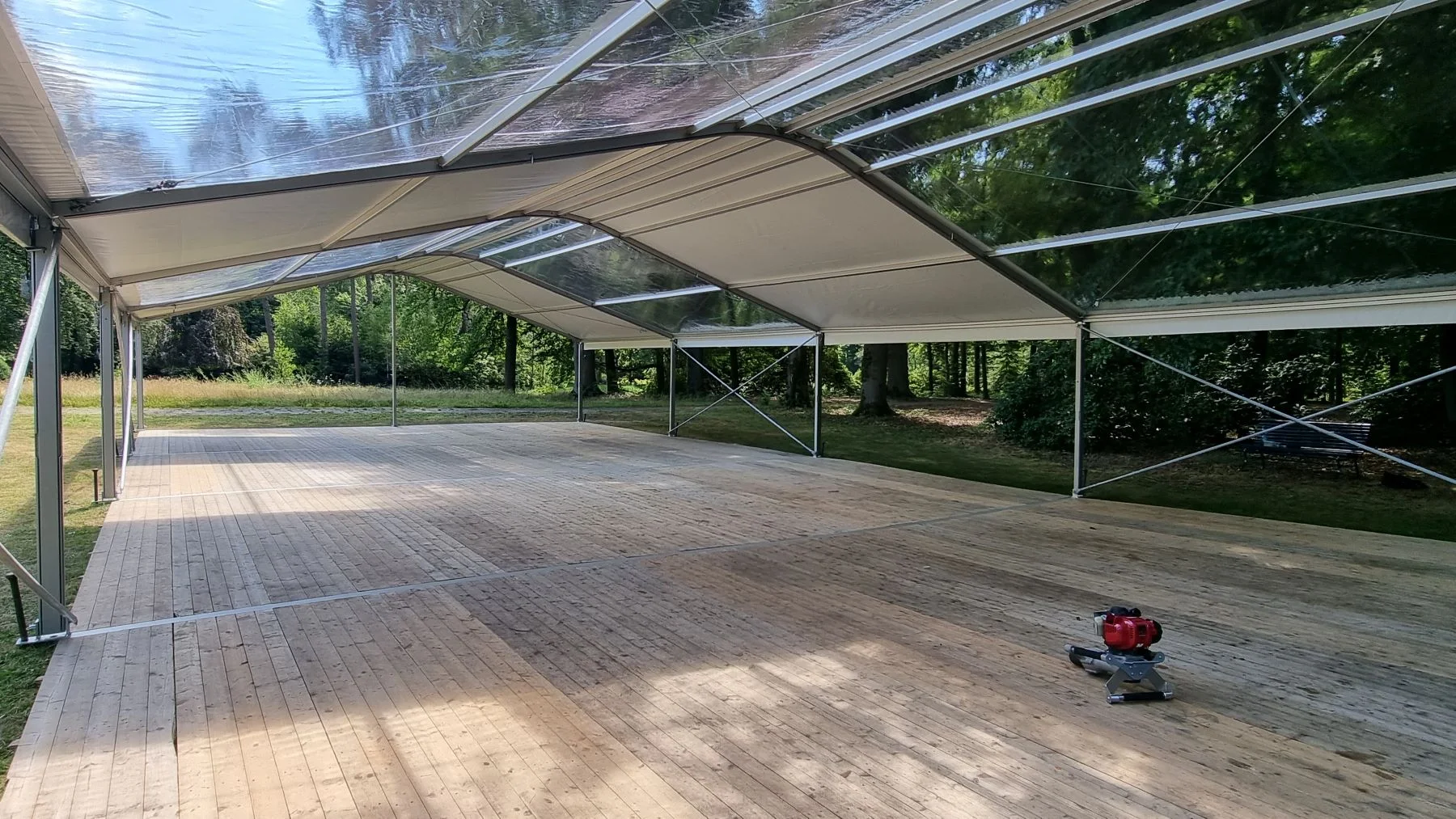Cassette floor vs. heavy-duty floor; which floor do you choose for your tent?
The floor of your pagoda, alu hall or semi-permanent industrial hall can make all the difference! In Belgium, most tent lessors work with cassette floors, while in the Netherlands the heavy-duty floor is the most commonly used floor. But which is the best tent floor for rental? We have listed the pros and cons of both floors for you!

